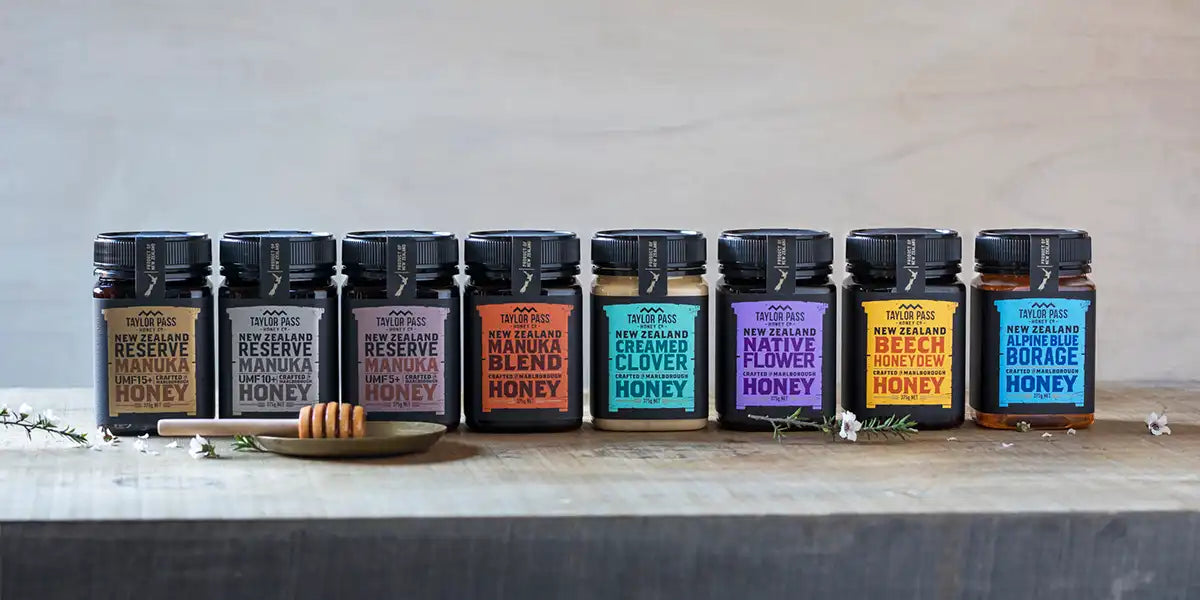Is Mānuka Honey Good for You? The Good and The Bad
Mānuka honey is one of the healthiest foods you can find that comes directly from nature. Studies have been performed to uncover where this type of honey gets its exceptional nutritive qualities. It is well known among the Maori, the native people of New Zealand, that the Mānuka flowers, as well as the honey produced from them, offer an abundance of nutritional benefits. Incorporating Mānuka honey into your diet can help you maintain good health and may even put a smile on your face.
Mānuka Honey and Immune Support
Mānuka honey is known to be highly nutritious. It contains vitamins, minerals, antioxidants, as well as having potent antibacterial properties. Consuming small amounts of Mānuka honey on a regular basis allows you to get many of the nutrients you need simply by eating something you love. Placing a small amount on toast or in your tea allows you to get the nutritional support you need to boost your immune system and lower your risk of illness and disease. Even honeys with a lower UMF ratings will provide ample nutritional support that will help to keep your immune system strong and resilient.

Mānuka Honey as an Antibacterial
The higher the UMF rating of a Mānuka honey, the stronger its antibacterial properties will be. Monofloral Mānuka honey carries the higher UMF ratings and has the strongest antibacterial properties. The price of monofloral honey is also much higher than that of multifloral honey due to its potency. Many people use Mānuka honeys with high UMF ratings more sparingly, due to its higher cost and strong potency. The important thing to remember is that the higher the UMF rating, the more potent the honey will be.
Mānuka Honey as an Antioxidant
Mānuka honey is also known for its abundance of antioxidants. Antioxidants are important to good health because they work to break down free radicals that can damage or destroy healthy cells throughout the body. Antioxidants track down and eliminate free radicals limiting the amount of damage they can do over time. Both multifloral and monofloral types of Mānuka honey contain antioxidants. Including Manuka honey in your diet is a good way to gain control of the free radicals you get from the air you breathe and foods you eat.

Multifloral vs Monofloral Honey
Multifloral Mānuka honey is a great choice to use in your cooking. It is less potent and better suited as a food staple than as a medicinal supplement. It still carries the distinctive Mānuka earthy flavor making it a great match for rich foods like salmon and meat, as well as cheese. Monofloral Mānuka honey with a higher UMF rating is best used much more sparingly. Where multifloral is ideal for sweetening your food and preventing ill health, monofloral is much stronger and will give your body's immune system a boost if you are ill or starting to feel under the weather.

Too Much of a Good Thing?
Just like everything else in life, you can get too much of a good thing. If you are trying to lose weight or keep your blood glucose levels under control, you will have to use Mānuka honey sparingly. Honey acts similar to other sugars within the body. It will provide you with a short burst of energy, but can disrupt how your body functions if you are a diabetic or are hypoglycemic. You can still use Mānuka honey, but you will need to monitor your blood glucose level, as well as your insulin levels in the process.
Mānuka Honey is a dark, very rich, flavorful honey. While you may try it for its nutritional value, you will come back to it again and again for its taste, texture, and versatility. Taylor Pass Honey harvests the highest quality Mānuka honey in a sustainable way. You can rely on every jar to have the most nutrients and richest flavor available on the market.

